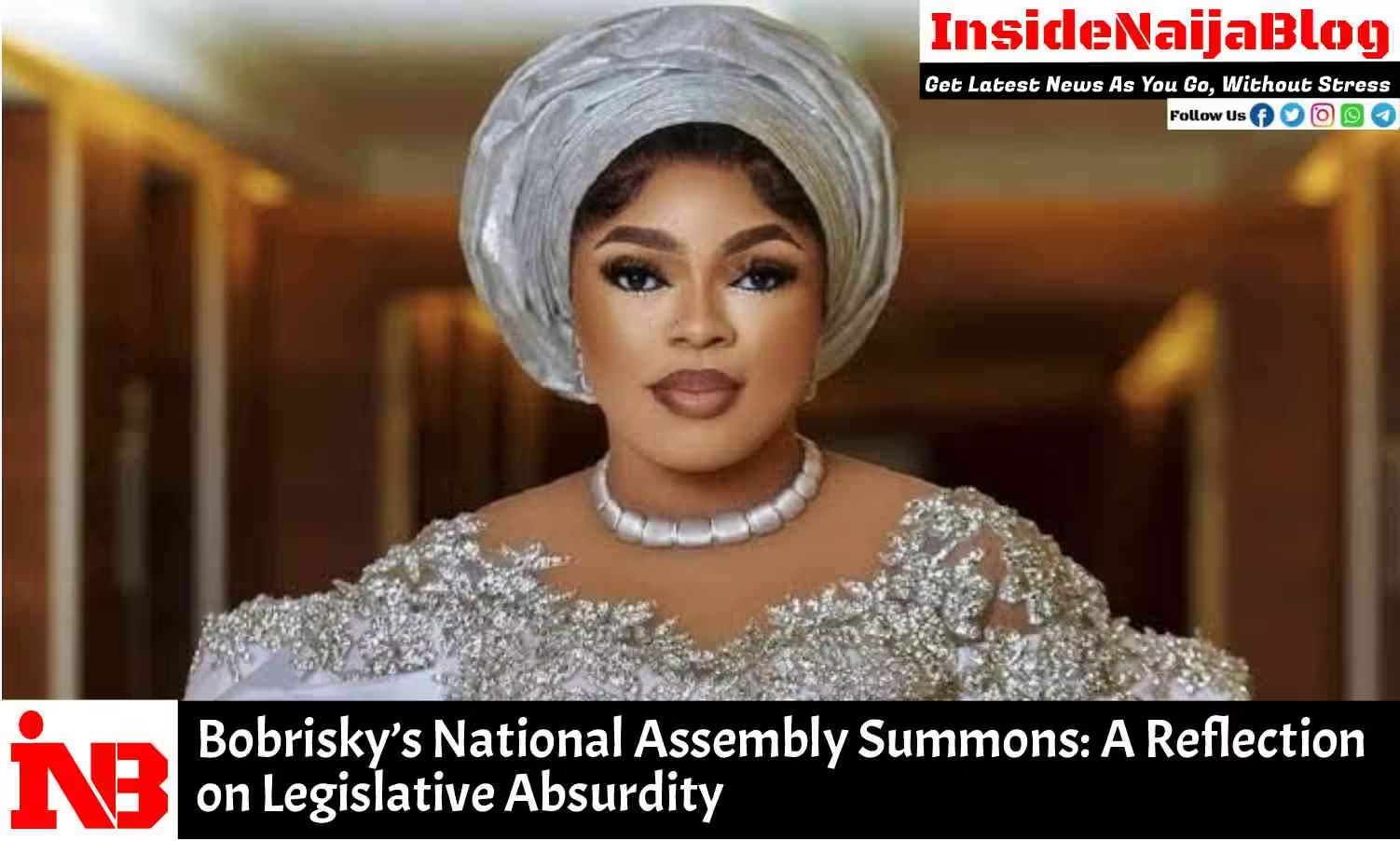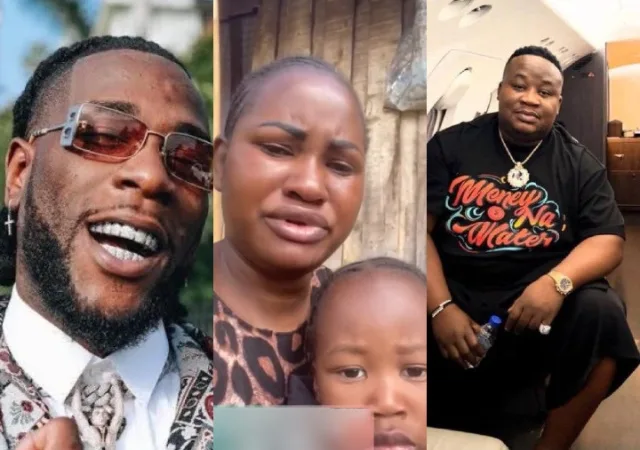In my previous article discussing the popular crossdresser and transgender figure Bobrisky, whose real name is Idris Okuneye, I posited that her antics reveal deeper truths about our society. Once again, Bobrisky has become the focal point of national conversation, this time making headlines at the National Assembly. The irony is palpable: her presence underscores the sheer emptiness of our lawmakers. While it’s no secret that they often behave like overpaid jesters, the spectacle of inviting a social media provocateur—accompanied by another individual dressed as a “native doctor”—to an investigative panel only cements the perception that their institution has reached an all-time low.
What exactly did the lawmakers expect when they summoned someone who merely released a recorded conversation? This individual did not engage in investigative journalism or even put any skin in the game. Instead, he played a role in a gossip-fueled drama, leaking a private dialogue involving Bobrisky that was intended for blackmail over a cleared debt. The mere act of bringing this character to the “hallowed chamber” is questionable. The absurdity escalated when they also invited Bobrisky, who wisely chose not to appear. What was the intended outcome of this bizarre face-off? Have we now reached a point where the National Assembly operates like a reality TV show?
I understand the lawmakers wanted to address the public interest surrounding the leaked tape, but their approach reeks of unseriousness. Their actions reveal a profound misunderstanding of their constitutional responsibilities and moral obligations. If they are genuinely interested in reforming our carceral system, there are ample resources available. Serious research conducted by reputable institutions, such as the National Institute for Policy and Strategic Studies (NIPSS) in Kuru, Jos, could provide valuable insights. Yet, they chose to chase after a social media “influencer” instead. It’s worth noting that none of the revelations thus far are particularly groundbreaking. Just last December, we witnessed the National Correctional Service, the Department of State Services (DSS), and the Economic and Financial Crimes Commission (EFCC) embroiled in a public spat over the custody of former CBN governor Godwin Emefiele. Why were three agencies scrambling over a wealthy inmate if not to exploit the opportunity he presented?
Back in 2019, investigative journalist Fisayo Soyombo conducted a groundbreaking investigation into the corruption rampant in the Nigerian prison system, even going so far as to get himself incarcerated to gather firsthand evidence. If the National Assembly sought a credible witness to the deterioration of the prison system, why overlook someone who has made sincere efforts in this area? Instead, they gravitate toward figures whose interest in the issue is superficial at best, merely turning the Internet into a platform for sensationalism.
Let me be clear: I am not opposed to a thorough investigation into these matters. Both the EFCC and the correctional services warrant scrutiny, especially regarding their procedures for granting presidential pardons, which have long been viewed with skepticism. While the allegations stemming from Bobrisky’s leaked tape may seem familiar, they are serious enough to merit a diligent investigation. However, what is entirely unacceptable is the frivolous nature of inviting social media figures—whose conflicts are often contrived—to confront each other. By inviting a host of journalists and broadcasting this encounter, they reduce a critical issue of institutional failure to mere entertainment. Such matters should be addressed by confronting the responsible institutions, not individuals whose actions merely reflect a larger systemic decay.
For me, the situation warrants investigation, particularly given the role of the EFCC and the alleged N15 million bribe. Their justification for dropping the money laundering charges against Bobrisky is scandalous, revealing significant flaws in their investigative process. An EFCC prosecutor, Bilikisu Bala, claimed that the charges against Bobrisky were based on her confession that her firm, Bob Express, was not registered with the Special Control Unit Against Money Laundering (SCUML) and had not been filing necessary returns. This raises critical questions.
It appears there was no substantial evidence to warrant Bobrisky’s arrest and subsequent charges for money laundering initially. Instead, they apprehended her, and when the charges related to currency mutilation proved too trivial to gain public support, they coerced her into self-incrimination, leading to charges based on her own statements. To reiterate, before the arrest, they lacked any credible evidence against Bobrisky, yet they believed that detaining her would yield usable information. This approach not only highlights systemic failures but also calls into question the integrity of our law enforcement agencies.
In sum, this whole episode serves as a potent reminder of the absurdities that pervade our legislative and judicial systems. Rather than addressing the serious issues at hand, our lawmakers seem more interested in spectacle than substance.




